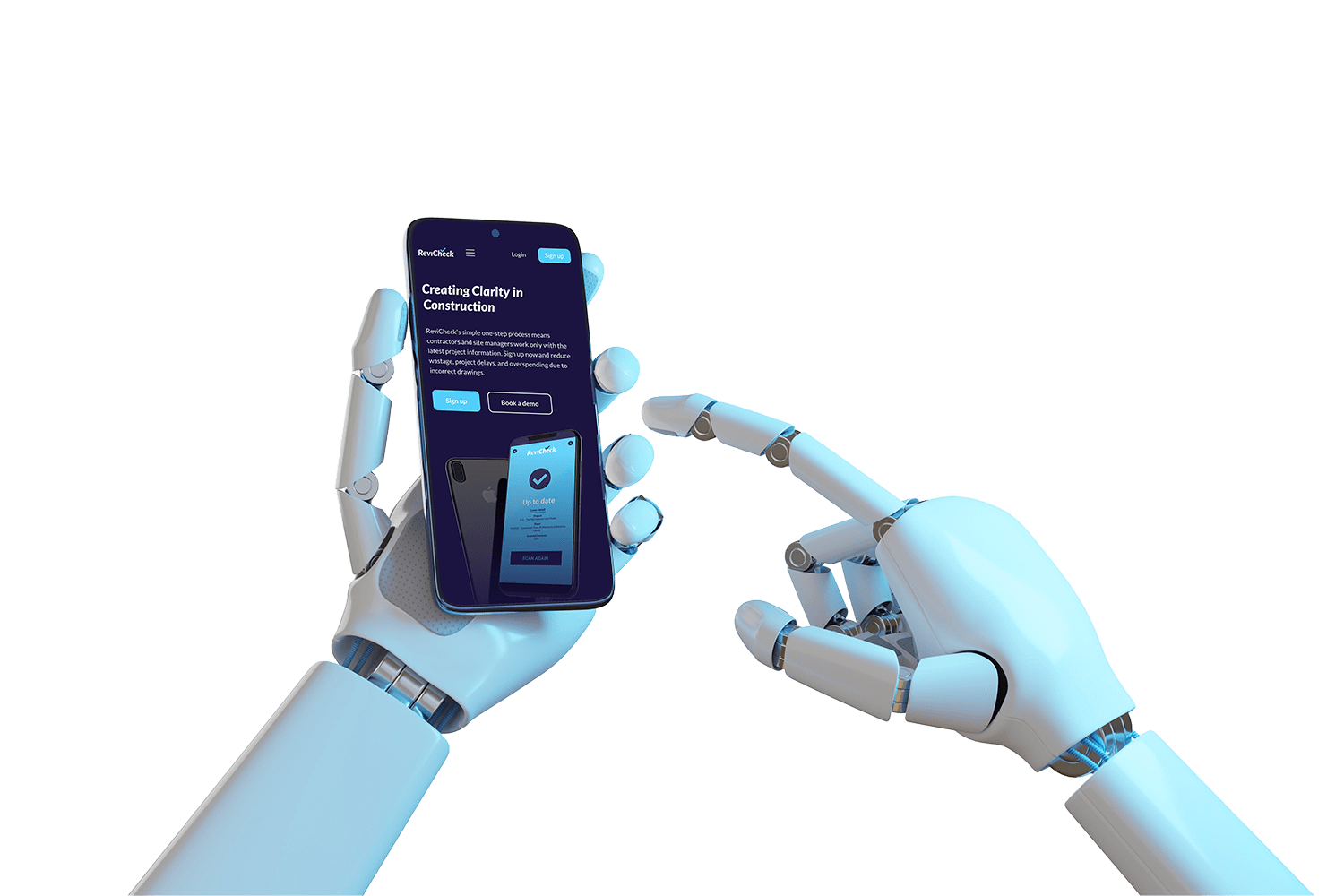In today’s digital age, having a website is essential for businesses to stay modern and competitive in their chosen industry. However, with the ever-increasing competition online, just having a website is not enough. To stand out and provide a seamless user experience, integrating artificial intelligence (AI) into your website can be a game-changer. AI can help automate tasks, personalise user experiences, and enhance overall functionality. In this article, we explore how you can implement AI into your website effectively.
Understanding the Role of AI in Websites
Understanding the role of AI in websites is essential to using its power effectively. AI, in the context of websites, serves as a powerful tool to enhance user experiences, streamline processes, and personalise interactions. At its core, AI enables websites to analyse vast amounts of data, learn from user behaviour, and make intelligent decisions or recommendations.

Here’s a deeper look at the key roles AI plays in websites:
Data Analysis
Websites generate immense volumes of data from user interactions, such as browsing behaviour, purchase history, and demographic information. AI algorithms can sift through this data, uncovering valuable insights that help businesses understand their audience better. By analysing patterns and trends, AI enables websites and businesses to tailor content, products, and services to meet the specific needs and preferences of individual users.
Personalisation
AI empowers websites to deliver personalised experiences to each visitor. Through techniques like recommendation engines and content customisation, AI algorithms can anticipate user preferences and dynamically adjust the website content accordingly. Personalised recommendations not only enhance user engagement but also increase conversion rates by presenting users with relevant offerings that resonate with their interests which is especially beneficial for ecommerce websites.
Automation
AI-driven automation streamlines various aspects of website management and operation. Tasks such as content moderation, customer support, and data processing can be automated using AI-powered tools and algorithms. Chatbots, for example, provide instant assistance to users, resolving common queries and guiding them through the website navigation process without human intervention.

Predictive Analytics
AI enables websites to predict user behaviour and anticipate future actions based on historical data. By employing machine learning algorithms, websites can forecast trends, identify potential opportunities, and optimise strategies for better outcomes. Predictive analytics inform decision-making processes, allowing businesses to allocate resources more efficiently and stay ahead of the curve in a rapidly evolving digital landscape.
Enhanced User Experience
Ultimately, the role of AI in websites is to enhance the overall user experience. By using AI-driven features such as personalised recommendations, conversational interfaces, and seamless automation, websites can attract users with intuitive navigation, relevant content, and instant assistance. AI ensures that every interaction with the website is smooth, efficient, and tailored to the individual preferences of the user.
What Should You Do Before Implementing AI Into Your Website?
Before implementing AI into your website, you should look at these crucial steps to ensure a smooth and successful AI integration:
- Define Objectives: Clearly define your objectives and goals for implementing AI into your website. Whether it’s improving user engagement, increasing conversions, or streamlining processes, having a clear understanding of what you aim to achieve will guide your implementation strategy.
- Understand Your Audience: Conduct thorough research to understand your target audience’s preferences, behaviour, and pain points. Identifying your audience’s needs and preferences will help you choose the right AI technologies and tailor their implementation to best serve your users.
- Assess Your Data: Evaluate the quality, quantity, and accessibility of your website’s data. AI relies heavily on data to analyse patterns, make predictions, and deliver personalised experiences. Ensure that your data is clean, organised, and accessible for AI algorithms to work effectively.
- Choose the Right AI Technologies: Select AI technologies that align with your objectives and address your audience’s needs. Whether it’s chatbots for instant support, recommendation engines for personalised experiences, or machine learning algorithms for predictive analytics, choose the technologies that best suit your requirements.
- Consider Ethical and Legal Implications: Be mindful of ethical considerations and legal regulations surrounding AI implementation. Ensure that your AI systems are transparent, fair, and compliant with data privacy laws to maintain trust and credibility with your audience.
By following these steps, you can lay a strong foundation for implementing AI into your website effectively, ensuring that it enhances user experiences, drives meaningful results, and complies with ethical and legal standards.
6 Easy Ways to Implement AI into Your Website
Integrate Chatbots for Instant Support
Integrating chatbots for instant support is a valuable addition to any website, enhancing user experience and providing efficient customer service around the clock. Chatbots use artificial intelligence and natural language processing to interact with users in real-time, answering queries, providing information, and resolving issues promptly.

By integrating chatbots into your website, you offer customers immediate assistance, reducing wait times and frustration. Chatbots can handle a wide range of inquiries, from general questions about products or services to more complex troubleshooting issues. They can also guide users through the website navigation process, helping them find relevant information or complete ecommerce transactions smoothly.
Moreover, chatbots can gather valuable insights from user interactions, such as frequently asked questions or common pain points, enabling businesses to optimize their website and improve overall user experience continuously.
We offer bespoke chatbot implementation to enhance your customers’ satisfaction and free up your resources to focus on what you love doing the most. If you’re looking for a modern, user-friendly chatbot for your business, get in touch today.
Implementing AI for Website Automation
Implementing AI systems for website automation revolutionises operational efficiency and enhances user experiences. AI automates repetitive tasks such as content moderation, data analysis, and customer support, freeing up human resources for more strategic endeavours.
AI-powered automation streamlines backend processes, ensuring smoother website operations and faster response times. For instance, AI algorithms can automatically categorise and tag content, optimise metadata for search engines, and schedule social media posts for maximum impact. This not only saves time but also improves content quality and visibility.
Furthermore, as we’ve discussed, AI-driven chatbots provide instant, round-the-clock customer support, resolving common queries and guiding users through the website navigation process. These chatbots use natural language processing to understand user inquiries and provide relevant responses, delivering a seamless and efficient support experience.
By developing AI systems for website automation, businesses can reduce operational costs, improve productivity, and enhance user satisfaction. With AI handling routine tasks and providing instant support, websites can operate more efficiently and deliver exceptional user experiences, ultimately driving engagement, loyalty, and business growth.
Personalise User Experiences with Recommendation Engines
Personalising user experiences with recommendation engines is a powerful strategy to engage visitors and drive conversions on your website. Recommendation engines analyse user behaviour, preferences, and past interactions to suggest relevant content, products, or services tailored to each individual user.
By leveraging recommendation engines, you create a personalised browsing experience that resonates with users’ interests and preferences. These recommendations can be displayed on product pages, blog posts, or in dedicated sections, guiding users towards content or products they are likely to be interested in. This not only increases the likelihood of conversion but also enhances user satisfaction by presenting them with relevant options without the need for extensive search.

Furthermore, recommendation engines continuously learn from user interactions, refining their suggestions over time to better match users’ evolving preferences. This iterative process ensures that recommendations remain relevant and compelling, further improving user engagement and loyalty to your website. Overall, personalised user experiences with recommendation engines can significantly enhance the effectiveness of your website and contribute to long-term business success.
Optimise Content and User Journeys with Machine Learning
Optimising content and user journeys with machine learning (ML) is a transformative approach to enhancing website performance and user experience. ML algorithms analyse vast amounts of data, including user behaviour, preferences, and engagement patterns, to identify trends and insights that inform content optimisation and user journey refinement.
By using ML, websites can dynamically tailor content and user journeys based on individual preferences and behaviours. ML algorithms can predict user intent, anticipate needs, and personalise content recommendations, leading to higher engagement and conversion rates. Additionally, ML can optimise website layout, navigation paths, and call-to-action placement through continuous testing and iteration, ensuring a seamless and intuitive user experience.
Moreover, ML-driven insights enable websites to identify and address pain points in the user journey, such as friction points during checkout or high bounce rates on specific pages. By optimising content and user journeys with ML, websites can deliver more relevant, engaging, and conversion-oriented experiences, ultimately driving business growth and fostering customer loyalty.
Enhance Security with AI-Powered Fraud Detection
Enhancing security with AI-powered fraud detection is crucial for safeguarding websites against malicious activities and protecting sensitive data. AI algorithms analyse vast amounts of data in real-time, detecting patterns and anomalies indicative of fraudulent behaviour.
AI-powered fraud detection systems employ machine learning techniques to continuously learn from past incidents and adapt to new threats, ensuring proactive threat detection and prevention. By monitoring user behaviour, transaction patterns, and system logs, these systems can identify suspicious activities and flag them for further investigation.

Moreover, AI enables real-time decision-making, allowing websites to automatically block or escalate potentially fraudulent transactions, removing risks and minimising financial losses. Additionally, AI algorithms can identify emerging threats and evolving attack vectors, enabling websites to stay ahead of cybercriminals and strengthen their security posture over time.
By enhancing security with AI-powered fraud detection, websites can protect their assets, preserve customer trust, and maintain regulatory compliance. With AI as a cornerstone of their security strategy, businesses can defend against increasingly sophisticated threats and ensure the integrity and confidentiality of their online operations.
Optimising Marketing Campaigns Through AI
Optimising marketing campaigns through AI revolutionises the way businesses connect with their audience, leveraging advanced algorithms and data-driven insights to enhance targeting, personalisation, and efficiency across various channels. Here are ways in which AI can help to optimise your marketing through your website:
- Audience Segmentation: AI analyses vast amounts of customer data to segment audiences based on demographics, behaviour, and preferences. This enables businesses to tailor campaigns and offers to specific segments, improving relevance and engagement.
- Personalised Content: AI-powered content recommendation engines deliver personalised content recommendations to users based on their past interactions and preferences. This enhances user experience and increases the likelihood of conversion.
- Dynamic Pricing: AI optimises pricing strategies by analysing market trends, competitor prices, and customer behaviour in real-time. This allows businesses to adjust prices dynamically to maximise revenue and competitiveness.
- Marketing Automation: AI automates repetitive marketing tasks such as email scheduling, social media posting, and campaign optimisation. This streamlines workflows, saves time, and enables marketers to focus on strategic initiatives and creative endeavours.
- Email Marketing: AI-powered email marketing tools analyse vast amounts of data, including user behaviour, preferences, and engagement patterns, to personalise and optimise email marketing campaigns for maximum effectiveness.

By harnessing the power of AI across these areas, businesses can optimise their marketing campaigns for improved targeting, personalisation, and ROI, ultimately driving growth and competitive advantage in today’s digital landscape.
In summary
In conclusion, integrating AI into your website offers great benefits, from enhancing user experience to improving efficiency and security. By carefully selecting the right AI technologies and implementing them into your website strategically, you can create a website that is not only user-friendly but also personalised and responsive to business’ needs.
The field of AI is constantly evolving, with new technologies and trends emerging regularly. Stay updated with the latest advancements in AI and how they can be applied to enhance your website further. Experiment with emerging AI technologies such as natural language generation, image recognition, or predictive analytics to stay ahead of the competition and deliver cutting-edge user experiences.
At wda.ai, we help you by implementing AI into their websites so that you can focus on attracting new customers and growing your business. By offering a range of innovative services including automation, chatbot implementation and web development, we can enhance your website to boost your business’ competitiveness online.
Get in touch here to find out more about how we can help your business succeed.




